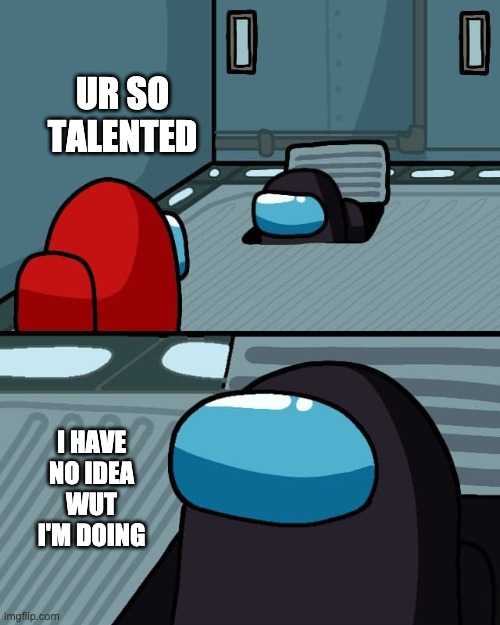
For many years I’ve dealt with moments of impostor syndrome during my time as a musician. Impostor syndrome is usually experienced when one’s level of confidence is significantly lower than their level of competence for a prolonged period of time. It’s the feeling of not belonging or being good enough; the feeling of not being deserving of a job position; the act of frequently comparing oneself to others, and the fear that others will “discover” them for a fraud. For me, this feeling would be most prevalent whenever I was put on the spot in front of groups of people – in social settings, teaching group classes, sometimes performing, and especially public speaking. I would always have this fear of embarrassing myself especially when surrounded by much more experienced and skilled colleagues. Sometimes this feeling would make me go practice for all the wrong reasons – such as to prove to myself that I could still perform basic things on my instrument, even after having played for decades. This didn’t always end well, because if I practiced too stressed out, it would only amplify my already-overinflated fight-or-flight response. On the flip side, this also meant that on those occasions I would be over-prepared.
Upon speaking to a couple coaches about impostor syndrome, they tried to convince me that I’m not an “impostor” and that I need to stop undervaluing myself. Hearing that made me feel like impostor syndrome is something we need to “heal” from and “get over.” I am writing this because I know that many musicians go through a similar experience throughout their careers. And I am here now to share with you that impostor syndrome is NOT a disease. It is something that we can work with. If we bring a healthy attitude to the table, the uncomfortable feelings of impostor syndrome can evolve into something with a stronger foundation, which can help us grow.
Enter Adam Grant
 In the 2nd chapter of Adam Grant’s bestseller Think Again, the author-psychologist compares impostor syndrome to its polar opposite – the Dunning-Kruger effect. The latter is when one is overconfident, is completely unaware of their shortcomings, and isn’t open to consider others’ feedback. Their confidence is much higher than competence and they don’t realize it. I don’t know about you, but I’d rather not be so oblivious of my weaknesses. Grant breaks down the advantages of impostor syndrome and how (if the confidence-competence gap isn’t too large) it can help propel one up a successful chain of events in achieving their goals.
In the 2nd chapter of Adam Grant’s bestseller Think Again, the author-psychologist compares impostor syndrome to its polar opposite – the Dunning-Kruger effect. The latter is when one is overconfident, is completely unaware of their shortcomings, and isn’t open to consider others’ feedback. Their confidence is much higher than competence and they don’t realize it. I don’t know about you, but I’d rather not be so oblivious of my weaknesses. Grant breaks down the advantages of impostor syndrome and how (if the confidence-competence gap isn’t too large) it can help propel one up a successful chain of events in achieving their goals.
A Professional Student
A musician with impostor syndrome is more likely to try different practice strategies and approaches when it comes to technique and interpretation. The feelings of uncertainty can make one ask more questions, do more research, rethink, and practice smarter. When there is less to lose, it’s easier to take risks, and that can help one cultivate their skills further than the point where 90% of others would quit. With impostor syndrome, it’s easier to take on the beginner mindset, which often equates to being an excellent learner with an open mind. According to Grant, this means that the playing field becomes level, as any shortcomings are replaced with the ability to learn well.
From Impostor Syndrome to Confident Humility
“Confident Humility: having faith in our capability while appreciating that we may not have the right solution or even be addressing the right problem.” – Adam Grant, Think Again
Impostor syndrome is only beneficial to us when that confidence-competence gap isn’t so huge to the point that it creates crippling self-doubt. During our process of learning and growing, we need to embrace the idea of being humble, and at the same time to understand that being humble does not equate to being unconfident. In the same way, humility is not equivalent to feeling small or low, but rather it’s a recognition that we all have flaws. Confidence is not the same as being arrogant, because when one is arrogant they are so certain and convinced by what they do that they become blind to their shortcomings. If instead we use the humble attitude to keep us on our toes, this will encourage us to stay focused on the process. It is during the embodiment of what Adam Grant defines as “confident humility” that it becomes easier to improve one’s skills, stay grounded, and make monumental progress.
Disclaimer: Article contains affiliate links.
